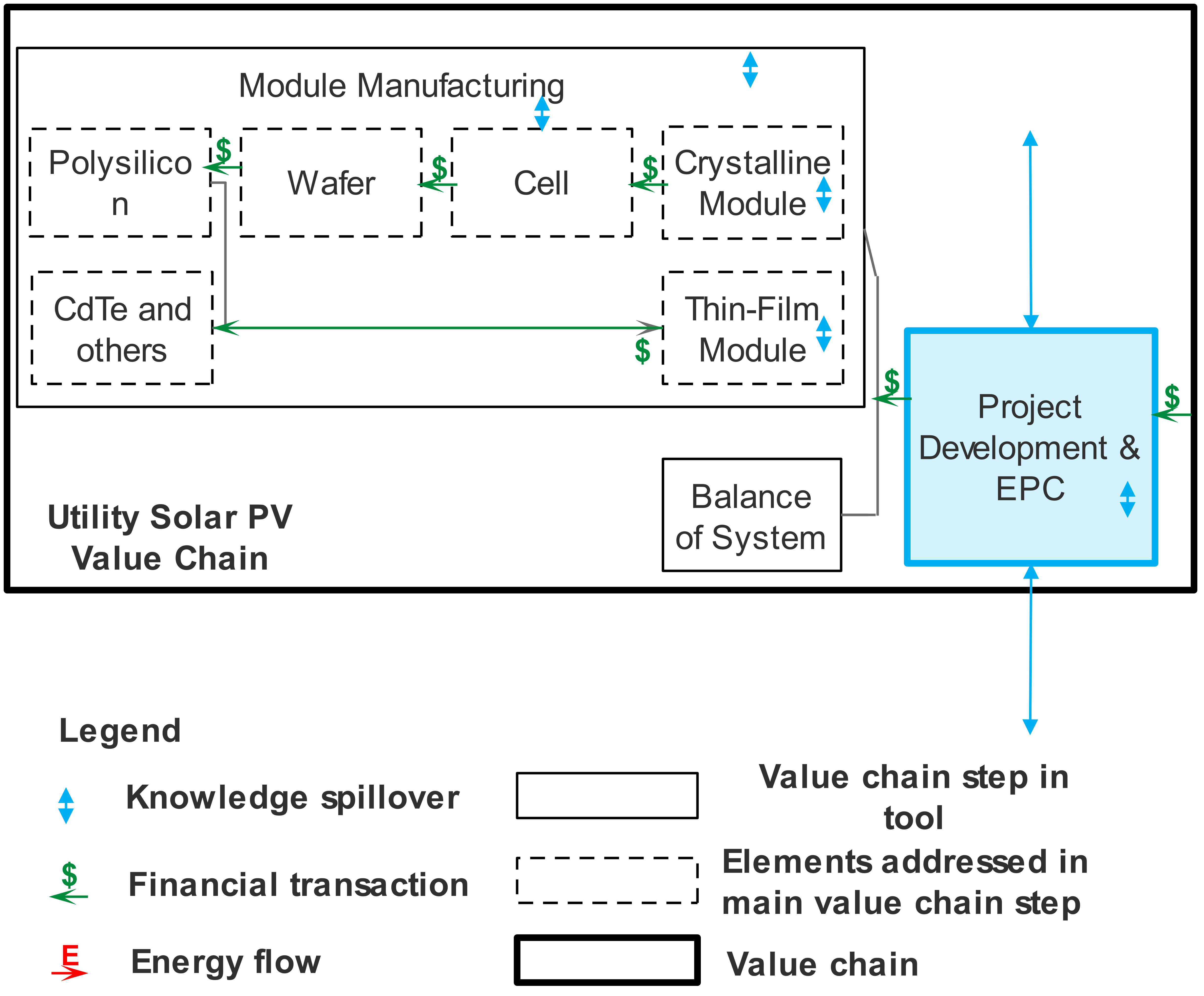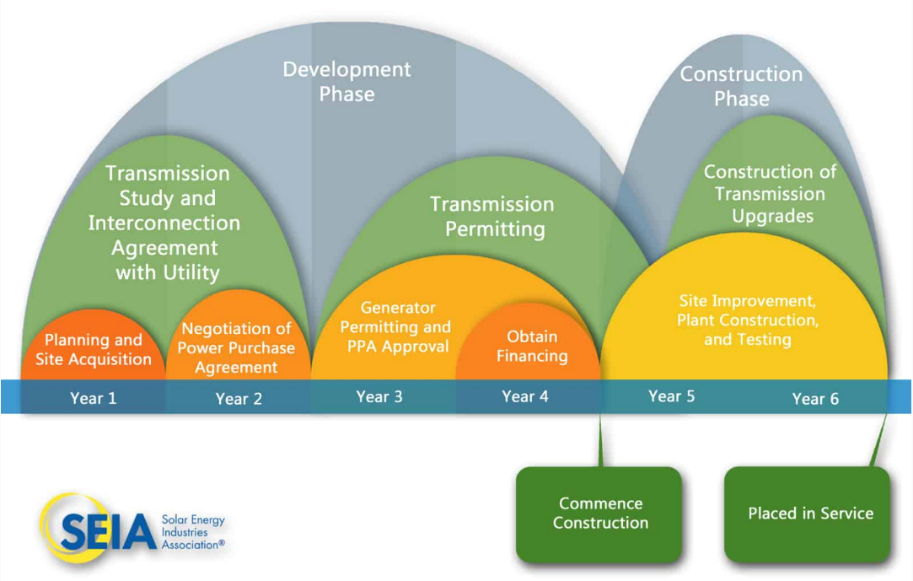
As a key step of the utility-scale solar value chain, project development activities include site selection, negotiations with the landowner, the permit application and grid connection, and acquisition of financial resources. The engineering, procurement, and construction (EPC), which is usually arranged by the project developer, is responsible for engineering and design, procurement of PV systems and other balance of plant equipment and materials, and construction and commissioning of generation facilities. The utility-scale solar project development industry has a low level of market share concentration across a variety of solar technologies; however, the market concentration is substantially higher within individual technology type (IBISWorld 2017). The innovative outcomes in this value chain step encompass the decreasing soft costs associated with solar PV system project development and EPC, as well as streamlining and decreasing the development timeline. Other relevant innovations include the increasing efficiency of solar panels that produce more power using less space or increasing capacity factor, and the expansion of durability or life of solar PV panels; these factors all contribute to decreased needs for land and facilities for utility-scale PV projects.

Utility-Scale PV Development Timeline (250MW)
Source: SEIA https://www.seia.org/research-resources/development-timeline-utility-scale-solar-power-plant
Select an information category (descriptive information, innovative outcomes, strategic conditions, and knowledge conditions) using the tabs to the left or navigate to a different value chain step using the drop-down menu at the top of the page.